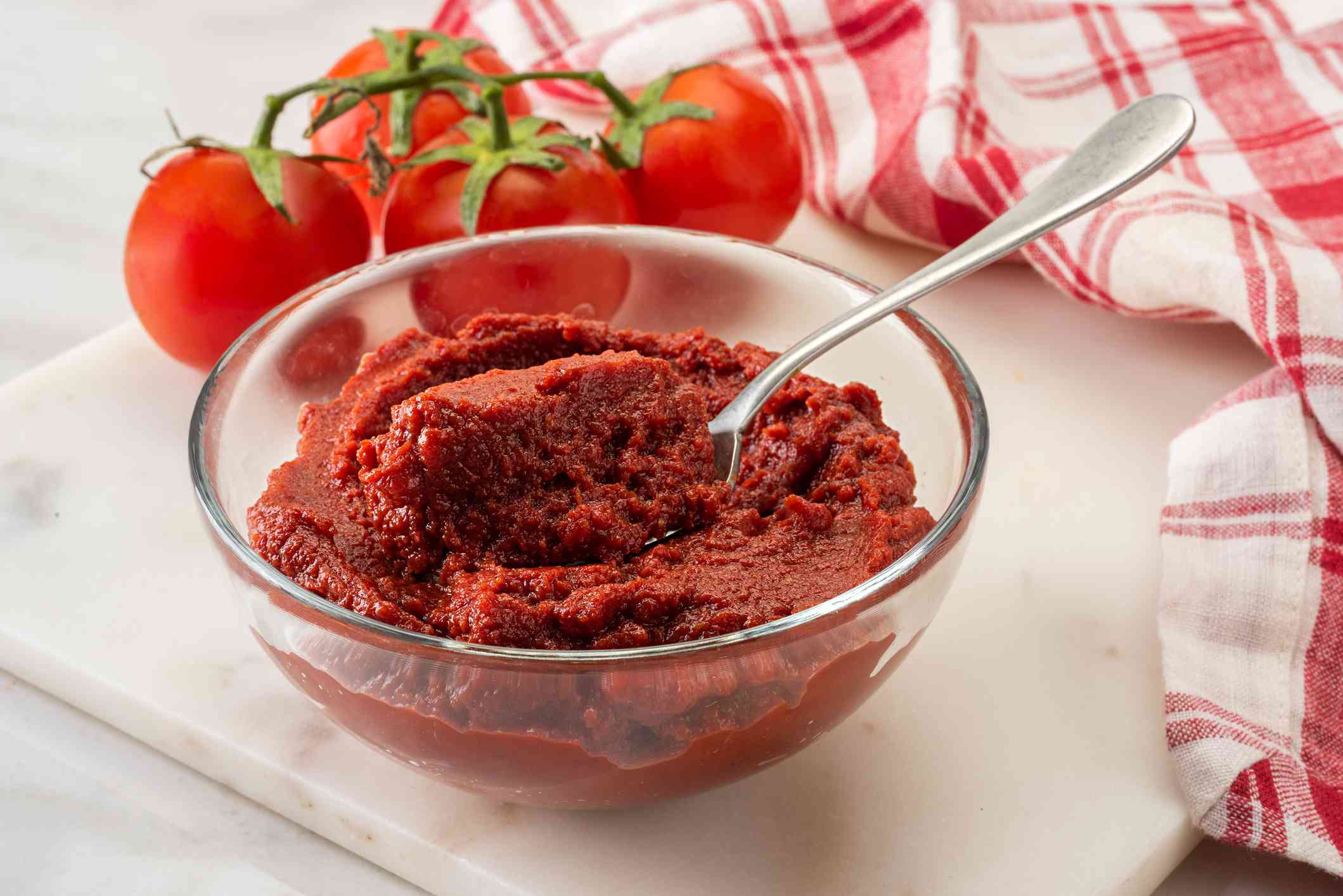Some social media posts have claimed that tomato paste is made from flour.
The posts which were circulated on X and Facebook were crafted with the intent to dissuade citizens from using the paste in meals.
On December 9, 2023, Solomon Buchi, a life coach, said he preferred to produce his tomato paste at home rather than buy from retailers.
Buchi said he found canned tomatoes “disgusting and unhealthy” which led to him making the paste at home “every two to four weeks” even though it was time-consuming.
Advertisement
Replying to the tweet, @subpharmacist, an X user, hailed Buchi for his effort, describing canned tomato paste as a “packaged problem”.
“You’re on the right track. Keep it up,” @subpharmacist tweeted.
“Do you know tomato paste is made with flour and sugar? Get your tomato paste and check the ingredients, you will be surprised. Packaged problems being marketed as food.”
Advertisement
The post was viewed over 8,000 times and so far has 96 likes and 18 retweets.
On February 4, @subpharmacist made the same claim.
“The day I discovered that tomato paste was made with flour and it also contained sugar, my entire life came crashing down. I was like what?” he tweeted.
Gathering more engagements this time, the tweet had 481 comments, over 7,000 likes, and 1,700 retweets, and has racked up over 933,000 views.
Advertisement
“This was the exact reason I stopped using it to cook except for jollof rice and I do use very little. Tomato paste is just flour, corn starch, and food coloring with sugar,” @AbiolaBlackdiva, a verified X user replied.
Several other comments also either expressed shock or agreed with the stance.
Lami Wata Abu, a social media user, duplicated the claim on her Facebook page, gathering 56 reactions and one share.
Nwakasi Uluoma, another Facebook user who was marketing her tomato paste on January 30, asked buyers to patronise her because “this is foreign made tomato paste, not all these flour and colour we buy here”.
Advertisement
Uluoma’s post had 38 likes and 23 comments.
A similar claim appeared on Pitakwa Vibes with 192 reactions, 74 comments and seven shares.
Advertisement
TOMATO PASTE AND DISHES
Tomato paste is a blend made from concentrated tomatoes that adds a strong flavour to dishes, without adding extra moisture.
Advertisement
Many chefs have considered the thick, smooth, deep-red paste a pantry staple in making popular meals like jollof rice, pasta, stew, and pie, to name a few.
According to Food Network, an American cable channel owned by Television Food Network, tomato paste is made from whole tomatoes that are cooked, strained to remove seeds and skins, then cooked again to evaporate moisture.
Advertisement
“Tomato paste can be pure, with no ingredients other than tomatoes, or may contain small amounts of salt, sugar, herbs and spices and sometimes citric acid as a preservative,” Food Network said in a blog post culled from its cooking school.
There was no mention of flour.
VERIFYING THE CLAIM
Ifeanyi Okafor, professor of food science and technology at the University of Nigeria, Nsukka, told TheCable that flour has no business being in tomato paste.
Although Okafor said flour as a standalone ingredient is a thickener for some chefs, the inclusion of the powder into processed tomato pastes is not a practice consistent with the production flow, unless the companies in question are being dubious.
“Harvested tomatoes are washed and then parboiled or cooked slightly in order to remove the skin. After removing the skin and the seed, it’s now reduced into puree. That puree is further evaporated to 70 percent to obtain tomato paste. That is the normal standard for making tomato paste, it wasn’t designed to contain flour,” the professor said.
Okafor said foreign companies that export tomato paste into Nigeria have manufacturing standards which the National Agency for Food and Drug Administration and Control (NAFDAC) has to approve before importation, and for all local brands consumed in the country, the inspection directorate of NAFDAC would need to check all raw materials and the process flow before approval for distribution.
The professor said any change in the production process would require the companies to alert NAFDAC which would then vet the new standards for health quality compliance.
TheCable contacted the food regulation company to ascertain the quality of the tomato pastes distributed in the country.
Mojisola Adeyeye, NAFDAC DG, said the basic ingredient for tomato paste is the juice or pulp from mature red tomatoes without the skins, seeds, or other coarse substances, adding that they should not contain flour and sugar.
“Other permitted ingredients in tomato paste include; salt (sodium chloride, spices and aromatic herbs(such as basil leaf, etc) and their natural extracts, lemon juice (single strength or concentrated) used as an acidulant; and water,” Adeyeye told TheCable.
She said the agency registers packaged tomato paste in line with the Nigerian industrial standard and the Codex standard for tomato paste.
“The public is advised to consume NAFDAC-registered tomato paste as these have gone through the NAFDAC regulatory assessment for safety and quality,” the professor added.
TheCable also inspected the ingredient labels on the packs of Sonia, Tasty Tom, Gino, and De Rica, — popular processed tomato paste brands in Nigeria — and did not see flour listed.
TheCable also contacted @subpharmacist via X to understand what informed his claim but the social media user did not immediately respond.
VERDICT
The claim that tomato paste contains flour and sugar is unproven and misleading. Sugar is not a required ingredient and no health or food expert has certified the inclusion of flour in the pastes. Flour, however, alongside tomato paste, can be added to meals that require such ingredients.
Add a comment






